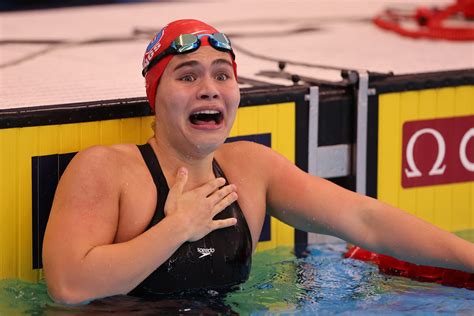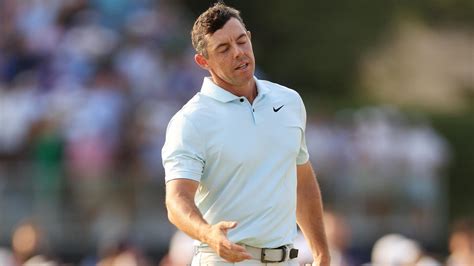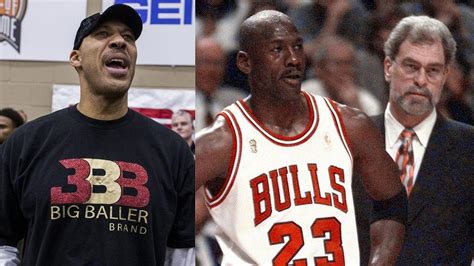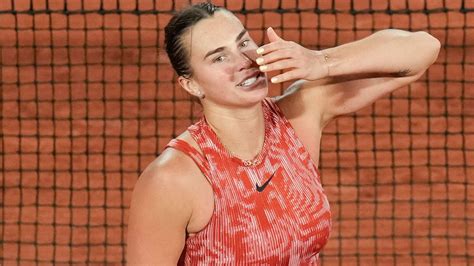
Paraguayan Olympic rower Alejandra Alonso abruptly left the Olympic Village in Paris, citing an unexpectedly high level of sexual activity among athletes as the primary reason for her departure. The 27-year-old athlete, who is set to compete in the single sculls event, expressed discomfort with the pervasive hookup culture, stating it distracted from her focus on the upcoming competition.
Alonso revealed her decision in a series of social media posts and interviews, explaining that the constant distractions and perceived lack of respect for athletes’ competitive goals made it impossible for her to adequately prepare. Her candid remarks have ignited a debate about the social atmosphere of the Olympic Village and its potential impact on athletes’ performance and well-being. While some have criticized Alonso for her perceived prudishness, others have voiced support for her stance, highlighting the pressures athletes face and the importance of maintaining a focused environment. The International Olympic Committee (IOC) has yet to release an official statement regarding Alonso’s concerns, but the incident has brought renewed attention to the often-overlooked aspects of the Olympic experience beyond the competition itself.
Alonso’s departure highlights the unique challenges faced by athletes at the Olympic Games, where intense pressure to perform collides with the social dynamics of a gathering of young, highly driven individuals from diverse backgrounds. The Olympic Village, designed to foster camaraderie and cultural exchange, can also become a breeding ground for distractions that may compromise athletes’ ability to compete at their best.
“This is my first time at an Olympics,” Alonso stated in an interview following her departure. “I came here to compete and represent my country, but the environment wasn’t conducive to that. There was too much… happening. It’s hard to focus when that’s all around you.”
The Paraguayan rowing federation has confirmed that they respect Alonso’s decision and are providing her with alternative training arrangements to ensure she can continue her preparation for the single sculls event. They emphasized their commitment to supporting Alonso’s goals and creating an environment where she can thrive.
The incident raises several important questions about the culture within the Olympic Village and the responsibility of the IOC in safeguarding athletes’ mental and emotional well-being. While the Olympics are a celebration of athletic achievement, they also represent a significant personal sacrifice for the athletes involved, requiring intense dedication and focus.
Alonso’s experience has sparked a broader discussion about the pressures faced by Olympians, many of whom dedicate years of their lives to training and preparation. The Olympic Village is designed to be a supportive environment, but the intense social atmosphere can be overwhelming, particularly for first-time Olympians. Some athletes have spoken anonymously about the pressure to engage in the social scene, even when it conflicts with their training regimen. The issue underscores the need for greater awareness and support for athletes’ mental health and well-being, ensuring they have the resources and support they need to cope with the unique challenges of the Olympic Games.
The IOC provides various support services for athletes, including counseling and mental health resources. However, some athletes argue that these services are insufficient and that more needs to be done to create a more supportive and respectful environment within the Olympic Village.
The incident involving Alejandra Alonso also highlights the cultural differences that can exist within the Olympic Village. Athletes from different countries and backgrounds may have different attitudes towards relationships and social interactions. What may be considered acceptable behavior in one culture may be viewed as inappropriate or distracting in another. This underscores the importance of cultural sensitivity and respect within the Olympic Village, ensuring that all athletes feel comfortable and supported.
The IOC has a code of conduct that outlines acceptable behavior for athletes and other participants in the Olympic Games. However, some argue that the code is not always effectively enforced and that more needs to be done to ensure that all athletes adhere to its principles.
Alonso’s decision to leave the Olympic Village is a personal one, but it raises broader questions about the culture and environment of the Olympic Games. Her experience serves as a reminder that the Olympics are not just about athletic competition, but also about the well-being and mental health of the athletes involved. As the Olympic Games continue to evolve, it is crucial that the IOC and national sporting federations prioritize the needs of athletes and create an environment that supports their physical, mental, and emotional well-being.
The case of Alejandra Alonso also sheds light on the role of social media in modern sports. Athletes now have a direct line of communication with the public, allowing them to share their experiences and perspectives in real-time. While this can be empowering, it also exposes athletes to potential criticism and scrutiny. Alonso’s decision to share her reasons for leaving the Olympic Village on social media generated both support and criticism, highlighting the challenges athletes face in navigating the digital landscape.
The use of social media by athletes also raises questions about privacy and the potential for exploitation. Athletes are often under pressure to maintain a positive image on social media, which can lead to them censoring their true feelings and experiences. It is important for athletes to have access to resources and support that can help them navigate the complexities of social media and protect their privacy and well-being.
The Olympic Games are a complex and multifaceted event that brings together athletes from around the world. While the focus is often on athletic competition, it is important to remember that the Olympics are also a human experience. The athletes involved are individuals with their own unique backgrounds, experiences, and challenges. It is crucial that the Olympic movement recognizes and addresses the diverse needs of athletes, ensuring that they have the support and resources they need to thrive both on and off the field of play. Alejandra Alonso’s situation serves as a powerful reminder of this important principle.
The incident also underscores the need for ongoing dialogue and collaboration between the IOC, national sporting federations, and athletes themselves. By working together, these stakeholders can create a more supportive and inclusive environment for all athletes, ensuring that the Olympic Games remain a celebration of athletic achievement and human spirit. The focus should always be on fostering an atmosphere where athletes can perform at their best while also prioritizing their well-being and mental health.
The long-term impact of Alejandra Alonso’s decision remains to be seen. However, her willingness to speak out about her experience has already sparked a valuable conversation about the culture of the Olympic Village and the challenges faced by athletes. Her courage and honesty may inspire other athletes to share their own experiences and advocate for positive change within the Olympic movement. Ultimately, her actions could contribute to a more supportive and athlete-centered environment at future Olympic Games.
The intense pressure to perform at the Olympics, coupled with the distractions of the Olympic Village, can be a significant burden for athletes. Many struggle with anxiety, stress, and feelings of isolation. It is imperative that the IOC and national sporting federations provide comprehensive mental health support services to athletes, including counseling, therapy, and access to mental health professionals. These services should be readily available and easily accessible to all athletes, regardless of their nationality or sport.
Furthermore, the IOC and national sporting federations should promote a culture of openness and acceptance around mental health. Athletes should feel comfortable seeking help without fear of judgment or stigma. Education and awareness campaigns can help to break down the barriers that prevent athletes from accessing mental health support.
The Olympic Village should also be designed to promote a sense of community and belonging. Athletes should have opportunities to connect with each other, share their experiences, and build supportive relationships. Organized social events, cultural activities, and recreational facilities can help to create a more welcoming and inclusive environment.
In addition to providing mental health support and promoting a sense of community, the IOC and national sporting federations should also address the issue of sexual harassment and misconduct within the Olympic Village. Clear policies and procedures should be in place to prevent and address such behavior. Athletes should be educated about their rights and responsibilities, and they should have access to confidential reporting mechanisms.
The Olympic Village should be a safe and respectful environment for all athletes. Any form of harassment or misconduct should be taken seriously and addressed promptly and effectively. By creating a culture of zero tolerance for such behavior, the IOC and national sporting federations can help to ensure that all athletes feel safe and respected.
The challenges faced by Alejandra Alonso highlight the importance of ongoing efforts to improve the athlete experience at the Olympic Games. By prioritizing the well-being of athletes, the IOC and national sporting federations can help to create a more supportive and inclusive environment that allows athletes to thrive both on and off the field of play. The focus should always be on ensuring that the Olympic Games remain a celebration of athletic achievement and human spirit, while also promoting the health and well-being of all participants.
The Paraguayan Olympian’s situation offers a critical lens through which to examine the complexities of the modern Olympic Games. While the pursuit of athletic excellence remains paramount, it’s crucial to acknowledge and address the human element, ensuring that the environment within the Olympic Village supports not only physical performance but also mental and emotional well-being. Alonso’s experience underscores the need for a more holistic approach to athlete care, one that recognizes the diverse challenges faced by Olympians and provides them with the resources and support they need to thrive. Her bravery in speaking out may well serve as a catalyst for positive change, leading to a more supportive and athlete-centered environment at future Olympic Games.
The issue also shines a light on the potential for a disconnect between the idealized image of the Olympic Games and the realities faced by the athletes participating. While the Olympics are often portrayed as a celebration of unity, sportsmanship, and international cooperation, the pressures and distractions within the Olympic Village can be intense, particularly for first-time Olympians like Alonso. It’s essential to bridge this gap by creating a more realistic and empathetic understanding of the challenges faced by athletes, and by providing them with the tools and resources they need to navigate these challenges successfully.
The incident involving Alejandra Alonso should serve as a wake-up call for the Olympic movement, prompting a comprehensive review of the policies and practices that govern the athlete experience. This review should involve input from athletes themselves, as well as from experts in mental health, sports psychology, and cultural sensitivity. The goal should be to create a more supportive and inclusive environment that prioritizes the well-being of athletes and allows them to perform at their best without compromising their mental or emotional health.
In the wake of Alejandra Alonso’s departure, the focus must shift towards proactive measures that can prevent similar situations from arising in the future. This includes strengthening mental health support services, promoting a culture of respect and inclusivity, and addressing the potential for sexual harassment and misconduct within the Olympic Village. By taking these steps, the Olympic movement can ensure that the Olympic Games remain a celebration of athletic achievement and human spirit, while also safeguarding the health and well-being of all participants.
The role of national sporting federations in supporting their athletes during the Olympic Games cannot be overstated. These federations have a responsibility to provide athletes with the resources and support they need to prepare for and compete in the Games, including mental health support, nutritional guidance, and logistical assistance. They also have a responsibility to advocate for their athletes’ well-being and to ensure that their voices are heard within the Olympic movement.
The Paraguayan rowing federation’s decision to respect Alonso’s decision and provide her with alternative training arrangements is a positive example of how national sporting federations can support their athletes. By prioritizing Alonso’s well-being and providing her with the resources she needs to continue her preparation, the federation is demonstrating a commitment to her success both on and off the field of play.
The Olympic Games are a global event that brings together athletes from diverse cultures and backgrounds. This diversity is one of the strengths of the Olympic movement, but it also presents challenges. It is important to foster a culture of cultural sensitivity and respect within the Olympic Village, ensuring that all athletes feel comfortable and supported.
The IOC has a responsibility to provide cultural sensitivity training to athletes and other participants in the Olympic Games. This training should cover topics such as cultural differences in communication styles, social norms, and attitudes towards relationships. By promoting cultural sensitivity, the IOC can help to create a more inclusive and respectful environment for all athletes.
The future of the Olympic Games depends on the ability of the Olympic movement to adapt to the changing needs of athletes. As athletes become more vocal about their mental health and well-being, it is important for the IOC and national sporting federations to listen and respond. By working together, these stakeholders can create a more supportive and athlete-centered environment that allows athletes to thrive both on and off the field of play.
The case of Alejandra Alonso serves as a powerful reminder that the Olympic Games are not just about athletic competition, but also about the well-being and mental health of the athletes involved. As the Olympic movement continues to evolve, it is crucial that the IOC and national sporting federations prioritize the needs of athletes and create an environment that supports their physical, mental, and emotional well-being.
Frequently Asked Questions (FAQ):
Q1: Why did Alejandra Alonso leave the Olympic Village?
A1: Alejandra Alonso, a Paraguayan Olympic rower, left the Olympic Village in Paris due to the pervasive hookup culture and high level of sexual activity among athletes, which she felt was distracting and detrimental to her preparation for the single sculls event. She stated that the environment was not conducive to focusing on her competition goals. As she mentioned herself, “This is my first time at an Olympics. I came here to compete and represent my country, but the environment wasn’t conducive to that. There was too much… happening. It’s hard to focus when that’s all around you.”
Q2: What has been the reaction to Alonso’s decision?
A2: The reaction to Alonso’s decision has been mixed. Some have criticized her for being overly sensitive or prudish, while others have supported her stance, recognizing the pressures athletes face and the importance of maintaining a focused environment for competition. Her decision has sparked a broader discussion about the social atmosphere of the Olympic Village and its potential impact on athletes’ performance and well-being.
Q3: What support is the Paraguayan rowing federation providing to Alonso?
A3: The Paraguayan rowing federation respects Alonso’s decision and is providing her with alternative training arrangements to ensure she can continue her preparation for the single sculls event. They have emphasized their commitment to supporting Alonso’s goals and creating an environment where she can thrive.
Q4: What mental health resources are available to athletes at the Olympic Games?
A4: The International Olympic Committee (IOC) provides various support services for athletes, including counseling and mental health resources. However, some athletes have argued that these services are insufficient and that more needs to be done to create a more supportive and respectful environment within the Olympic Village. There are calls for increased access to mental health professionals, education, and awareness campaigns to break down the stigma associated with seeking help.
Q5: What is the IOC’s code of conduct, and is it effectively enforced?
A5: The IOC has a code of conduct that outlines acceptable behavior for athletes and other participants in the Olympic Games. However, some argue that the code is not always effectively enforced and that more needs to be done to ensure that all athletes adhere to its principles. This includes addressing issues such as sexual harassment and misconduct, promoting cultural sensitivity, and creating a culture of respect within the Olympic Village.









